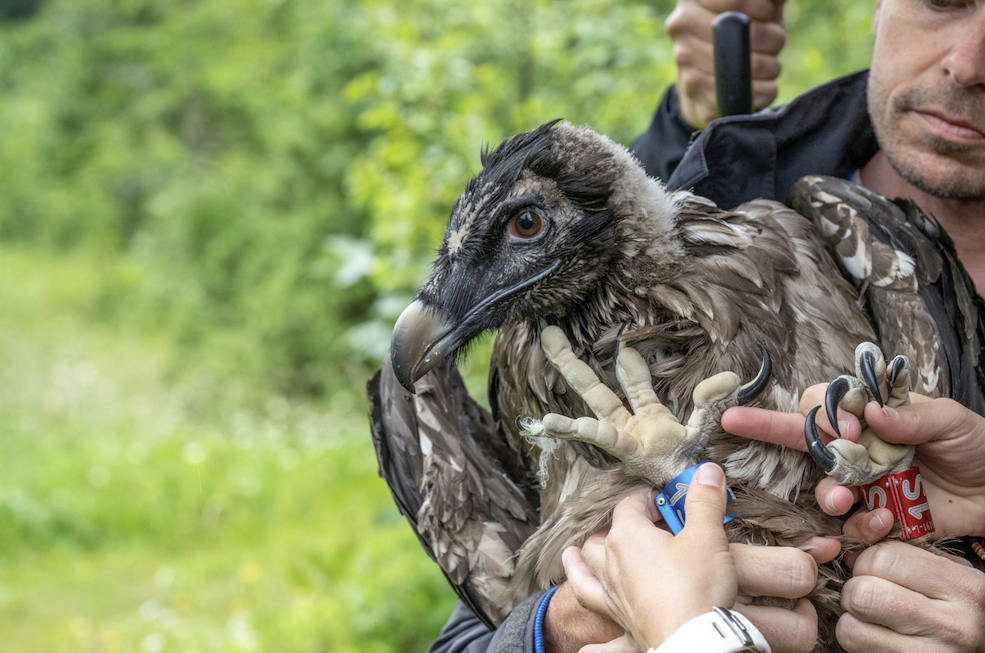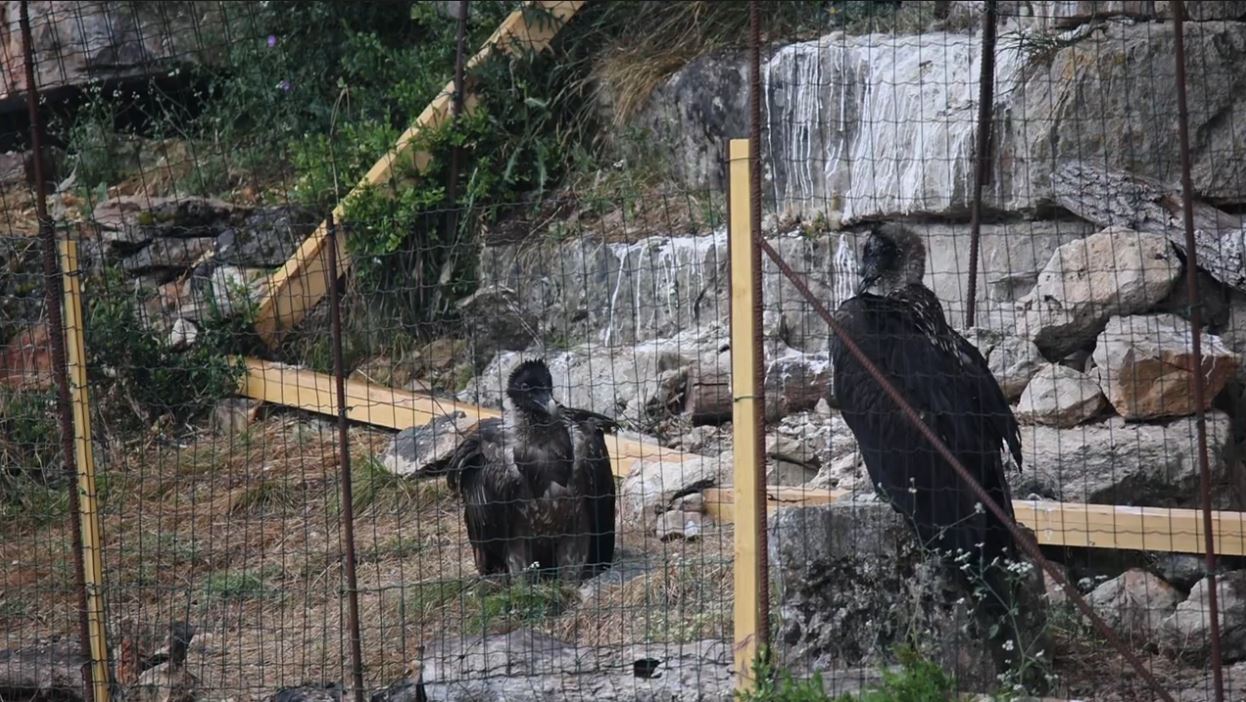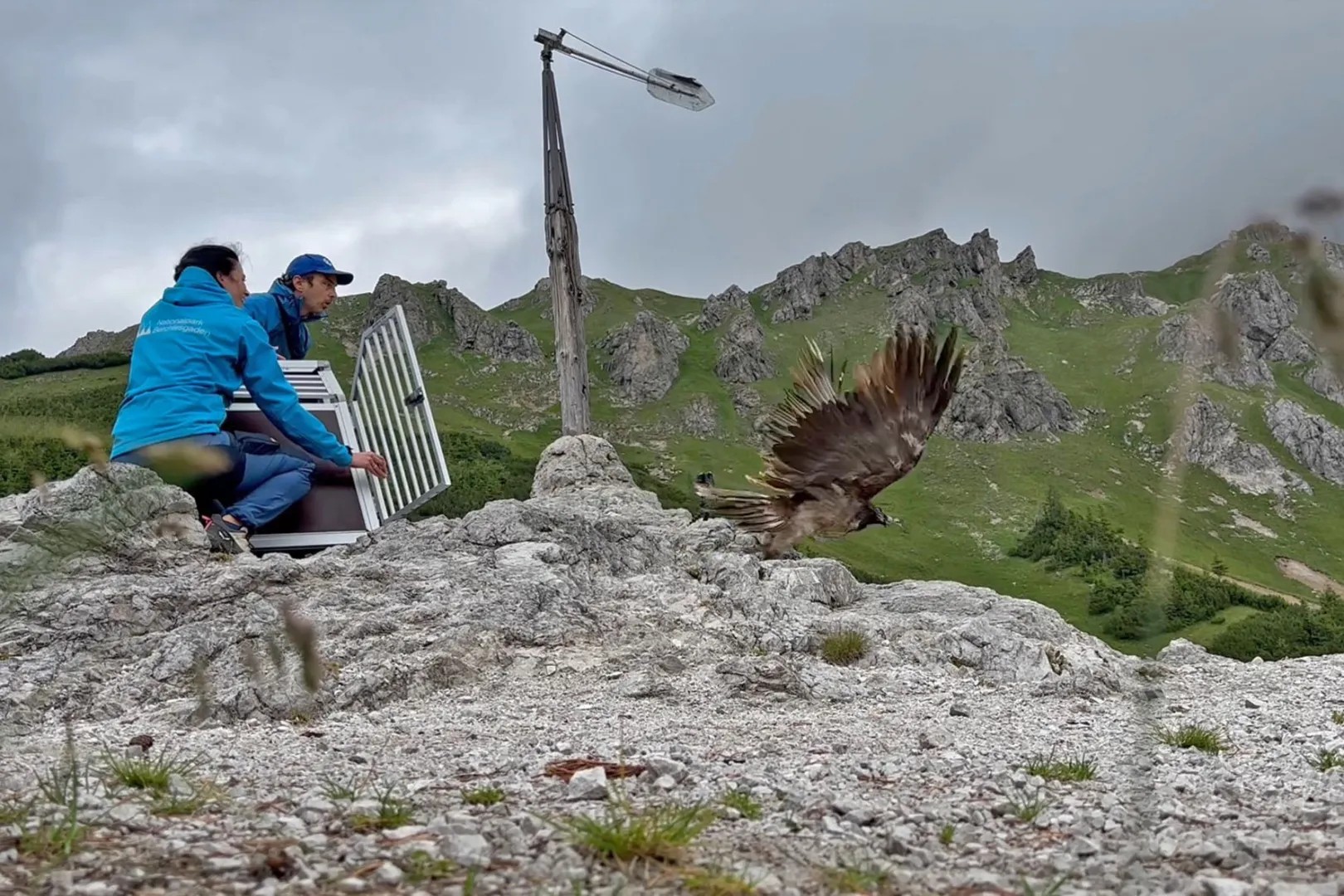
Since last year, more than 140 years since their extinction, Bearded Vultures have been flying through the skies of the Bavarian Alps in Germany again following the first release of young birds. On 9 June 2022, two more young and captive-bred Bearded Vultures were released in the region for the second time.
Hatching in captivity for conservation purposes
The Bearded Vultures released for our reintroduction and restocking projects hatch within the Bearded Vulture Captive Breeding Network (Bearded Vulture EEP), coordinated by the Vulture Conservation Foundation (VCF) on behalf of EAZA‘s EEP (Bearded Vulture EEP). Over 40 zoos, private collections and specialized breeding centres are part of this network that breeds the species in captivity for conservation purposes.
Both chicks provided to the project in the Bavarian Alps are female and come from the Bearded Vulture Captive Breeding Centre of Guadalentín, located in Jaén. Guadalentín, currently managed by the VCF following an agreement with the Junta de Andalucía, contributed 61% of the chicks produced within the Bearded Vulture EEP this season, with eight young hatching in this centre.
Releasing the two Bearded Vultures in the Bavarian Alps


When the vultures became around 90 days old, they started their journey from Spain to Germany. They spent some time at Nuremberg Zoo to rest and on the day of the release, experts retrieved the birds and transferred them to Nationalpark Berchtesgaden (NPB). They first presented the two vultures to the hundreds of Bearded Vulture fans from all over Germany and nearby Alpine regions that gathered to see them. After the official public ceremony, experts from Landesbund für Vogelschutz in Bayern e.V. (LBV) and NPB began carrying the two vultures up the mountain to release them into the hacking platform, located at 1,300 metres altitude.
After the expert team successfully placed the vultures named ‘Recka’ and ‘Dagmar’ in the artificial nests, they equipped them with GPS transmitters, examined their condition one last time and provided them with their first meal. Immediately afterwards, the project staff left the hacking platform. From that time onwards, they will feed and monitor them from afar, enabling the vultures to acclimatize to the natural environment until they are ready to take their first flight around 30 days after their release. With this technique, the nestlings can associate the release site with the hatching area so that when they reach breeding age at around 8-10 years old, they select these places to breed. When Bearded Vultures are young, they tend to travel vast distances and explore new regions, but once they become sexually mature, they typically select areas to breed that are close to where they hatched.
Dagmar and Recka take their first flights
After extensive flight exercises, the first vulture to fledge the nest was Dagmar. In the morning hours of 2 July 2022, she took a leap of faith and successfully took her first flight. Eight days after Dagmar, the second young bird Recka also left the hacking platform!
We hope both birds have a long and bright future ahead in the wild, and one day settle and form their own families in the Bavarian Alps!
Bearded Vulture Reintroduction in the Alps
The species was driven to extinction in the Alps during the 20th Century, and to bring them back, pioneers from all Alpine countries initiated the reintroduction project in the 1970s. The first birds were released in 1986 at Hohe Tauern National Park (Austria), and in 1997 the first breeding pair successfully raised a chick in the wild in France.
Today, there are between 250 and 300 Bearded Vultures across the Alps, including 61 breeding pairs. This reintroduction project has sparked the imagination and gathered the support of many stakeholders across the Alpine chain and is considered one of the best wildlife comeback stories of all time!
Now, with the releases of Bearded Vultures in the Bavarian Alps, Germany becomes the fifth country to join this successful reintroduction project, an important milestone to promote the geographical expansion of the species towards the east and boost conservation measures in the region as a whole.
Follow the VCF on Twitter to stay tuned with Bearded Vulture news!










